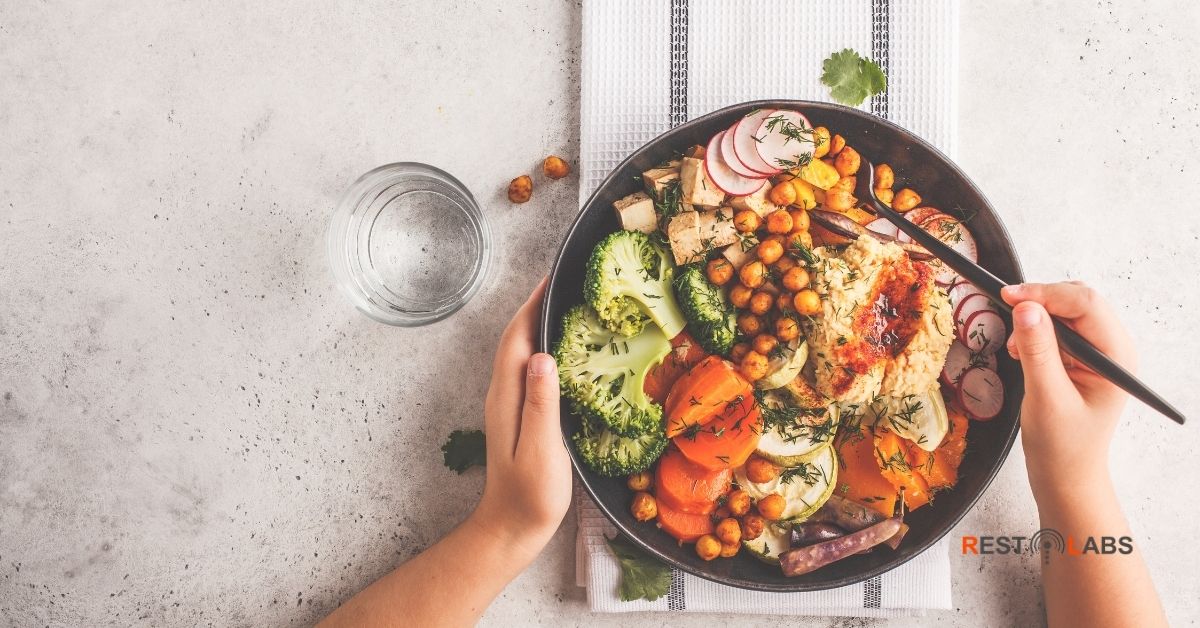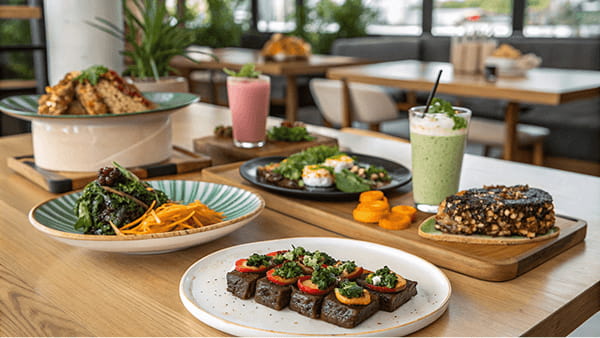Key Takeaways
As the COVID-19 pandemic continues, Americans have had to rethink perspectives and make several changes to their lifestyle. Shifting food habits is one major trend that we’ve been witnessing.
The coronavirus outbreak has opened our eyes to the importance of food choices for our own well-being as well as that of our environment. The implications of these choices are far-reaching, and this current pandemic has served as a huge wake-up call.
Even before the COVID-19 health crisis, the vegan trend was gaining fast momentum, but now the demand for plant-based food and drink has accelerated. It’s important for restaurants to keep track of all the rapid transformations in customer eating habits because these behaviors are not only going to live through the pandemic but will endure well into the post-COVID-19 future.
“Even before COVID-19, I saw people starting to experiment with plant-based options because of environmental or sustainability concerns. And now because of COVID-19 and the news surrounding packing plants and treatment of employees, I think people might consider other alternatives or at least try purchasing meat from local farmers or consider direct farm-to-consumer models,” says well-known dietitian Amber Pankonin to Healthline.
There are many ways that restaurants can adopt the vegan trend, which we will discuss in detail. But first, let’s understand what veganism is and why it’s gaining mass following during the pandemic.
What is veganism?
According the Vegan Society, “Veganism is a way of living which seeks to exclude, as far as is possible and practicable, all forms of exploitation of, and cruelty to, animals for food, clothing or any other purpose. There are many ways to embrace vegan living. Yet one thing all vegans have in common is a plant-based diet avoiding all animal foods such as meat (including fish, shellfish and insects), dairy, eggs and honey—as well as avoiding animal-derived materials, products tested on animals and places that use animals for entertainment.”
Veganism, therefore, is not merely a dietary preference but an entire lifestyle in itself. Apart from plant-based food vegans also shun everyday products that use or contain parts of animals. So the reason for someone going vegan has equally to do with achieving better health as it has to do with preventing animal cruelty and advocating for environmental sustainability.
Why is the vegan trend picking up during the pandemic?
Coronavirus is prevalent in certain animal species and while its transmission from animals to humans is usually uncommon, the new strain is believed to have come from bats.
This virus transmission, however, is not self-activating and there are other related factors as shown by the United Nations Environment Programme and the International Livestock Research Institute. The report suggests that zoonotic diseases are caused by an alteration in the ways animals and humans interact, which means an increase in land degradation, wildlife exploitation, resource extraction and climate change all play a role.
Taking stock of the situation, people have started expressing growing concerns about eating meat and the subsequent ecological damage this entails.
Another reason why consumers are now turning to vegan diets is the shortage in the meat supply. The meat supply chain in the US has been hard hit during the pandemic. Wendy’s made headlines recently when it completely removed beef products from one-fifth of its restaurants. This shortage has also led to consumers seeking other alternatives and plant-based foods.
What are the benefits of a vegan diet against COVID-19?
While anyone can be affected by the coronavirus, people with existing health conditions and older people are more at risk of developing critical symptoms. These underlying conditions include high blood pressure, diabetes, obesity among others. In New York City, almost every coronavirus patient hospitalized had an underlying medical condition
The old adage—prevention is better than cure’—seems absolutely befitting even in the current context. And veganism is all about prevention. This quote by Dr James Bennie, a plant-based diet advocate sums it all up, “In the world of medicine if I put you on a pill, I could see you back every three months for the rest of your life. That’s how we make money in medicine. If I put you on a plant-based diet and you get better, I may never see you again.”
Danielle Belardo, a cardiologist, and plant-based diet champion states that her patients have experienced positive results with their chronic medical conditions after shifting towards plant-based eating and there’s growing interest in this area within the medical community.
Speaking to Plant Based News, another renowned cardiologist Dr. Joel Kahn asserted, “A plant-based diet offers protection against COVID-19 because we have so much lower rates of the pre-existing conditions that increase your risk.”
“Hypertension, high blood pressure, obesity, heart disease, type 2 diabetes. These are the diseases that are dramatically lower among those who eat a healthy, whole food, plant-based diet,” he added.
How can restaurants adopt the vegan trend?
Here’s a list of some basic points you should note down if you want to adopt the vegan trend:
- The most important thing to remember is that veganism is a lifestyle choice. So diners will associate with you not only for the food you serve but what you stand for as a brand.
- Partner with an ethical plant-based company and connect with organic farmers in and around your city for your supply chain.
- Be realistic about higher food costs because organic and plant-based ingredients don’t come cheap. You should also expect frequent price fluctuations. Higher profit margins can be kept to cover this cost.
- Hire staff who are socially-conscious and care for the environment as much as you and your customers do.
- Use biodegradable materials for utensils and takeaway packages for delivery. Try to go zero waste.
- Encourage your delivery drivers to use electric cars and two-wheelers.
- For takeaways and deliveries, communicate with your customers constantly. Many people feel that delivery packaging leads to increased use of plastic. So it’s important to let your diners know about all the steps you’re taking in this regard.
- Participate in community events and activities that advocate for social causes like animal cruelty, climate change, etc.
Opening a new vegan restaurant or accommodating veganism to your existing business is not going to be an easy task. But taking on the challenge will certainly be worth it. What do you think about this shift in the industry food trends? Share your thoughts and views in the comment section below.
Frequently Asked Questions


.gif)



%2520(10).png)


.png)

